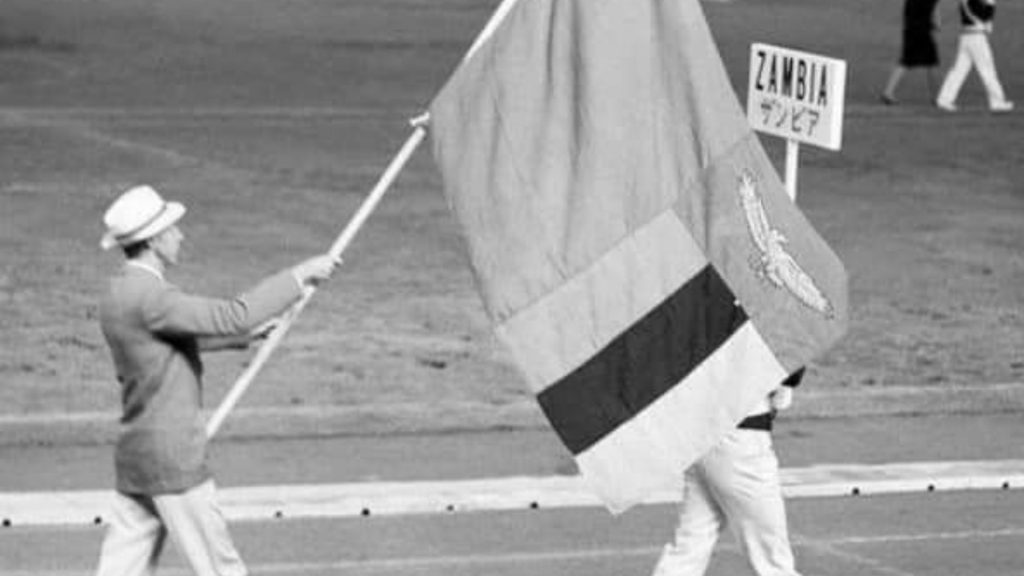The 1964 Tokyo Olympics revolutionized the games as it was the first in Asia and it was also the first to be broadcast via satellite rather than tapes.
The Tokyo Olympics in 2021 is been plagued by the coronavirus pandemic. Initially supposed to begin in July 2020, it was postponed due to COVID-19. There is a real fear that the games might be cancelled in 2021. Japan is in the middle of the fourth wave of the coronavirus pandemic. Vaccination is going at a slow rate. Tokyo had already created history by becoming the first Asian nation to host the Olympic games twice. 57 years earlier, in 1964, Tokyo staged the Olympics for the first time. It was a move that revolutionized the games totally.
When Tokyo was announced as the host of the Olympics, there was tremendous joy. Japan had been decimated in World War 2. The fire-bombing of Tokyo, the atomic bombs on Hiroshima and Nagasaki in August 1945 had totally destroyed and humiliated Japan. However, in the coming years, Japan would witness an economic miracle. The basis of the economic miracle was the cooperation of manufacturers, suppliers, distributors and banks in close-knit groups; the powerful enterprise unions, good relations with government bureaucrats, and the guarantee of lifetime employment in big corporations and highly unionized blue-collar factories.
Moreover, Japan’s predominant push for more female labours saw the economy booming, with rapid industrialization further fueling the economy. It was in this backdrop that the Olympics arrived on Asia’s doorstep.
Before the Olympics, Japan unveiled the operations of their first ‘Bullet Train’. The Tokyo Shinkansen line that connected the capital to Osaka began. However, there was one more symbolic event that showcased Japan’s symbol of hope. The Olympic flame was lit by Yoshinori Sakai. There is an interesting story behind the choosing of Sakai.
Sakai was born in Hiroshima on 6 August 1945, the day an atomic bomb was dropped on that city. He was chosen for the role to symbolize Japan’s postwar reconstruction and peace. Although he was not a full-time athlete, Sakai became the ultimate symbol of Japan’s recovery. He never actually competed in any events at the Olympics. Two years after the Olympic games, he won a gold medal in the 4 X 400 m relay. He secured a silver in the 400 m at the 1966 Asian Games. He joined Fuji Television in 1968 as a journalist and worked mainly in news and sports.
The 1964 Games were the first to be telecast internationally without the need for tapes to be flown overseas. The games were telecast to the United States using Syncom 3. It was the first geostationary communication satellite. From there, it was relayed to Europe using Relay 1. These were also the first Olympic Games to have color telecasts, albeit partially. Certain events such as the sumo wrestling and judo matches were tried out using Toshiba’s new colour transmission system. Overall, Japan came third in the medals table behind the mighty Americans and Soviets.
There is also a very interesting story of one country that entered the Olympics with a different name but ended it with a different name. In the opening ceremony, Zambia had entered the Games as Northern Rhodesia. However, just before the end of Games, Zambia declared Independence from Britain. They came to the closing ceremony with a placard titled Zambia instead of Rhodesia.

With Zambia declaring Independence, the focus shifted to South Africa. It was the first time that South Africa was banned from participating in the Olympics due to its Apartheid policies. Until 1964, South Africa had been allowed to enter segregated teams conforming to the country’s racial classifications. The international community now accepted the arguments put forward by the South African Non-Racial Olympic Committee (SAN-ROC). They argued that by accepting this loophole, the Olympic Committee was tacitly endorsing the racist policies of South Africa government.
The IOC demanded a single multi-racial team be sent to Tokyo. When the South African government refused, they were excluded from participating.
The Indian hockey team continued their dominance in the world of Hockey in Tokyo. In the group stages, India reached the top of the table with five wins in seven matches with two draws. India defeated Belgium and drew with the Germany team that fielded both West and East Germany together. India also drew with Spain. They went on to win big against Malaysia, Hong Kong, Canada and the Netherlands.
In the semi-finals, Pakistan got the better of Spain 3-0 while India won a tight game against Australia. The 3-1 win helped them get into the final where they would face their arch-rivals. In the gold medal match against Pakistan, a penalty from Mohinder Lal in the 41st minute helped India win their seventh gold medal in Hockey. The win would be bittersweet. This would be the last gold in hockey for the next 16 years until the 1980 Moscow Olympics.
Lal was part of the side that had secured the Silver medal in the 1960 Rome Olympics. After Tokyo, the right half settled in Spain after retiring from Indian Railways. He also worked as coach of Real Club de Polo in Barcelona for many years.
The Tokyo Olympics was a splendid exhibition and demonstrated the prowess of Japanese society in the powers of recovering quickly after a devastating war.